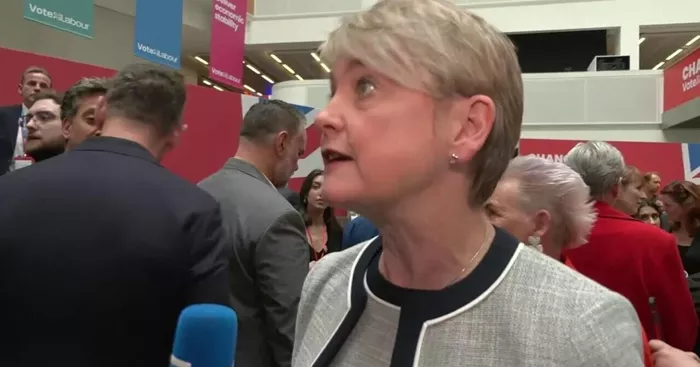Following the recent elections, the United Kingdom has welcomed its sixth Home Secretary in just two years (or fifth, if counting Suella Braverman’s two terms). With the Labour Party now at the helm after fourteen years of Conservative rule, all eyes are on Yvette Cooper, the newly appointed Home Secretary responsible for steering Britain’s immigration policies.
Her tenure in opposition provides insights into the path she may chart, although the current landscape of immigration politics in 2024 presents significant constraints.
Since Prime Minister Boris Johnson’s election in 2019, successive Conservative Home Secretaries have capitalized on public concerns over immigration, introducing increasingly stringent policies and controversial schemes aimed at criminalizing irregular migrants.
This period climaxed with the infamous, albeit now abandoned, Rwanda mass deportation plan. Prior to this, there were reports of various proposals, such as relocating asylum seekers to offshore oil platforms for processing or installing a wave machine in the English Channel to deter incoming boats.
During much of this turbulent period, Yvette Cooper served as the shadow Home Secretary and chaired the Home Affairs Select Committee. Her role often saw her holding the government accountable for its immigration strategies.
Notable moments included challenging a Conservative minister to reject the “bonkers” proposals mentioned earlier, scrutinizing then-Home Secretary Priti Patel over allegations of housing asylum seekers in non-COVID-compliant conditions, and criticizing Patel’s successor, Suella Braverman, in Parliament for what she termed a “woefully inadequate” record on prosecuting human traffickers.
These instances, coupled with Ms. Cooper’s impassioned speeches advocating for a progressive immigration system rooted in the U.K.’s historical openness to immigration, signal a marked departure from the rhetoric of previous Home Secretaries. This shift contrasts sharply with figures like Braverman, who once expressed aspirations of witnessing deportation flights carrying asylum seekers.
Already, the new cabinet has taken steps to fulfill its promise to abandon the Rwanda scheme, with the last two individuals held pending deportation set to be released, although the precise procedures involved remain to be confirmed. Throughout the recent election campaign, Cooper consistently condemned the Rwanda initiative, labeling it “an excessively costly gimmick” and accusing the Conservatives of dismantling the immigration system.
Despite scrapping the Rwanda plan, the Labour government has expressed intentions to increase deportations of failed asylum seekers and negotiate more repatriation agreements with their countries of origin. Rachel Reeves, another prominent figure in the new cabinet, previously criticized the Conservatives for their perceived lack of urgency in deportation efforts.
In place of the Rwanda initiative, Labour has pledged to establish a “Border Security Command,” reminiscent of the Conservative’s appointment of a “Clandestine Channel Threat Commander” in 2020. This command will wield counter-terrorism-style powers aimed at combating smuggling networks. While specifics are yet to be detailed, such measures suggest heightened surveillance and interception activities in the English Channel.
Cooper, drawing from her extensive tenure on the Home Affairs committee with a focus on migration issues, is undoubtedly cognizant of evidence suggesting that such strategies often fail to deter crossings and may even increase the risks associated with them. Migration experts consistently argue that offering safe and legal avenues for asylum claims is key to reducing dangerous boat crossings.
However, given the prevailing political discourse surrounding immigration in the U.K., radical changes to immigration policy under the new Home Secretary and Labour government appear unlikely. Instead, their strategy seems aligned with the Conservatives’ fundamental approach—escalating deportations and reducing overall migration levels, albeit with a slightly moderated stance.
In conclusion, Yvette Cooper’s ascendancy to the role of Home Secretary marks a pivotal moment in British immigration policy, promising a shift in tone from the adversarial stance of recent years while navigating the complex realities of contemporary immigration challenges.
Related topics:



















